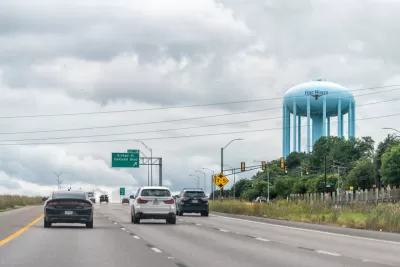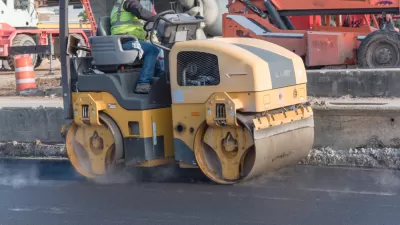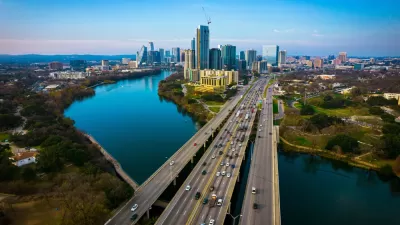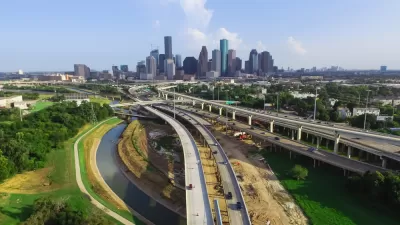Community Design Fort Worth, a nonprofit collective of planners and designers, is pushing the Texas Department of Transportation to do something revolutionary with its plans to widen Interstate 30.

The Texas Department of Transportation (TxDOT) is conducting a corridor study of 12 miles of Interstate 30 between Interstate 820 and Chisholm Trail Parkway with the potential to widen the freeway for promised safety, mobility, and congestion benefits.
According to an article by Sandra Sadek for the Fort Worth Report, advocates hope the project could offer a chance to reconnect neighborhoods historically severed by the freeway.
“Since its creation 70 years ago, Interstate 30 West has divided Fort Worth’s mostly white and affluent neighborhoods from its racially diverse and lower-income neighborhoods,” writes Sadek. “Now, with the Texas Department of Transportation’s proposed expansion and work on I-30, Fort Worth advocates hope to use this opportunity to join communities previously separated by the interstate and create opportunities for economic growth across the city.”
State departments of transportation are infamous for promising congestion and safety benefits from freeway expansion despite a lack of evidence to back up their claims. TxDOT is responsible for one of the most infamous examples of a failed freeway widening, with the Katy Freeway in Houston.
The advocates described in the source article, however, are aware of those limitations, and are calling on TxDOT to innovate their freeway planning approach.
“Urban planners are looking at highways across the entire country, and seeing the impacts that that car-centric approach had for building those, not taking into consideration other users,” says Community Design Fort Worth Executive Director Ann Zadeh, as quoted in the article. “Now people are saying, ‘What can we do to do this better going forward?’ You live and learn and hopefully, you don’t repeat things that brought on negative consequences and take the opportunity to do better when you know better.”
“The $1.8 billion dollar project is split into two phases, with the first recommendations to be announced in early 2023,” adds Sadek for a benchmark to monitor the project moving forward.

Planetizen Federal Action Tracker
A weekly monitor of how Trump’s orders and actions are impacting planners and planning in America.

Chicago’s Ghost Rails
Just beneath the surface of the modern city lie the remnants of its expansive early 20th-century streetcar system.

San Antonio and Austin are Fusing Into one Massive Megaregion
The region spanning the two central Texas cities is growing fast, posing challenges for local infrastructure and water supplies.

Since Zion's Shuttles Went Electric “The Smog is Gone”
Visitors to Zion National Park can enjoy the canyon via the nation’s first fully electric park shuttle system.

Trump Distributing DOT Safety Funds at 1/10 Rate of Biden
Funds for Safe Streets and other transportation safety and equity programs are being held up by administrative reviews and conflicts with the Trump administration’s priorities.

German Cities Subsidize Taxis for Women Amid Wave of Violence
Free or low-cost taxi rides can help women navigate cities more safely, but critics say the programs don't address the root causes of violence against women.
Urban Design for Planners 1: Software Tools
This six-course series explores essential urban design concepts using open source software and equips planners with the tools they need to participate fully in the urban design process.
Planning for Universal Design
Learn the tools for implementing Universal Design in planning regulations.
planning NEXT
Appalachian Highlands Housing Partners
Mpact (founded as Rail~Volution)
City of Camden Redevelopment Agency
City of Astoria
City of Portland
City of Laramie





























